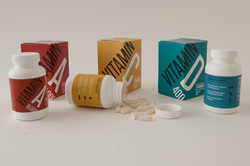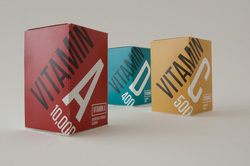
Eczema is on the rise in all first world countries. The prevalence of eczema has doubled or tripled in industrialized countries during the past three decades. In Israel, atopic eczema was found to be increasing [from 5.9% (1997) to 8.7% (2003). No one knows precisely what causes eczema or why it is becoming more prevalent in western societies. While first world countries decreased steadily in the number of cases of infectious disease, there has been a yearly increase in cases of allergic (atopic) diseases.
Research has shown eczema to have a clear genetic component, as a child with parents having either eczema, asthma or hay fever will be far more likely to develop eczema or one of these other atopic/allergic conditions.
I am writing this article to give my perspective on what alternative medicine has to offer children and adults with eczema. Although what causes eczema is not known, much research has been done looking at alternative treatments and their effectiveness. Some of these studies shed light on what is going on in the body with people who have eczema. My hope in this article is to expose you to some real evidenced based treatment options and give some new insights about the disease.
Western Treatment Options:
Before we begin with alternative medicine, lets consider the options our western medical doctors offer. In truth, treatment options are limited, with some having unwanted side effects. The two main options are emollient therapy - moisturizers – and topical steroid creams, which suppress the skin's immune response. Topical steroids are a common first line of defence and may be necessary to deal with the severe symptoms of eczema. However, Naturopathic Medicine strives to treat the cause of the disease, not only the symptoms.
The Triggers:
Anxiety and stress, arid climates, irritants, allergens and infections are all known triggers of eczema. Food allergies and early food introduction are big culprits. 35-40% of children with eczema have food allergies. Eggs are the most common allergen along with milk, peanuts, soy, wheat, fish, shellfish, tree nuts and citrus fruits – all accounting for 90% of food allergies in eczematous children.
Does It Ever Go Away?
The good news is that approximately 50% of children will no longer be troubled by eczema by the age of 2 and 80% cent by the age of 5. The bad news is there is no cure for eczema except to reduce occurrences and control the disease.
Prevention
Babies are born to be breastfeed. Breast milk contains over 100 hundred substances not found in formula but are vital to normal development and function of your child’s immune system. Breast milk contains gamma-linoleic acid that is particularly important for babies with a family history of eczema. Recent trials have found that breast fed babies have reduced or delayed incidence of atopic diseases such as eczema, allergies and asthma and conclude that eczema tends to occur more in bottle-fed babies.
Things To Consider
Interestingly research has shown that children with poor hygiene are at a lower risk for developing eczema, as are children who drink unpasteurized milk. These findings align with a theory called the ‘Hygiene Hypothesis’, which postulates that a lack of early childhood exposure to infectious agents, bacteria and parasites increases susceptibility to allergic diseases by suppressing the natural development of the immune system. Our overly clean environments in the industrialized world may be backfiring on us. This theory has yet to be conclusively shown to be the cause of eczema, but it is definately something to consider.
Naturopathic Understanding of Eczema:
It is believed in the alternative medical world that inherited eczema may be related to a disturbance how the body deals with essential fatty acids. It has been suggested that people with eczema have a problem with the enzyme called delta-6-desaturase, which is critical to the conversion of omega-6 fatty acids to various other important fatty acids. For people with a genetic disposition to this problem, over-consumption of refined processed foods and saturated fats can become a major trigger. Also food allergy is believed to play a major role in eczema. Many studies have pointed specifically to cows milk and eggs as a major trigger. One study I saw showed 80% improvement in children after being off these foods for 4 weeks.
Naturopathic Treatments For Eczema:
Food Allergy: Addressing food allergies and using elimination diets and then food challenges to find the trigger foods is critically important for dealing with eczema. This however, should only be done with the supervision of a nutritionist, naturopathic or dietician. This is especially important in children, who need proper minerals and vitamins from foods to grow. For instance, when we take children off dairy and eggs without knowing what else to feed them we can compromise their development. As well, some children with very bad cases of eczema have been found to become even more allergic to a food when it is removed from the diet and then reintroduced, and there have been a few cases of severe life threatening allergic reactions. For this reason, this approach may not be safe in all cases. It is important then to find a qualified health practitioner to supervise and guide you through these dietary changes.
Often people with Eczema come to see me after they find that the tests with their allergist did find any IgE food allergy. In Jerusalem, I am one of the few practitioners that provides IgG Food intolerance testing. I have found time and again that this test is effective for finding the food that is triggering a patients eczema.
Fatty Acids: As mentioned above, biochemical evaluations of patients with eczema have demonstrated abnormalities of fatty acid metabolism. Supplementation with oils such as evening primrose oil, sunflower oil, flaxseed oil, borage oil, fish oil and hempseed oil has all shown to have very positive effects on reducing symptoms of eczema. Each has different amounts of the essential fatty acids so you may need to do some experimenting till you find the right one. I often use flaxseed oil with my patients and have seen good results.
Nickel Sensitivity: Contact with Nickel is a known cause of eczema. An allergist can test for this sensitivity. What is less known is that even ingestion of foods high in nickel or nickel that has leached into food from stainless steel cookware can trigger eczema in people sensitive to nickel.
Environment: Improving your environment by removing dust mites from the home, washing linens weekly in hot water, avoiding carpeted bedrooms and adding a humidifier to combat dry air can all help reduce eczema symptoms and lower the incidence of relapses.
Herbal Medicine: There are many herbs that are used to support the immune system and reduce inflammation. These include Chamomile and Echinacea. Chickweed is an excellent cooling remedy for hot inflammatory skin conditions. Eczema associated with stress or anxiety can benefit from herbs that support the nervous system such as lemon balm, chamomile or vervain. Local herbal applications can be very soothing and can help resolve inflammation and infection. Licorice gel in a recent double blind trial was found to be beneficial & “Kamillosan” containing chamomile was found to be slightly superior to 0.5% hydrocortisone. Ask your local herbalist about these products to see whether they are right for your case of eczema.
Baths: Soaking in baths for 15-20 minutes daily helps to retain moisture. But it is important to dry off completely and immediately coat the skin with a naturally based emollient cream or ointment. Because eczema predisposes your child’s skin to weakness, it is less able to retain water and can cause shrinking and cracking of the skin. I often recommend an oatmeal bath because it really soothe the skin well when there is extreme itching. Premade oatmeal bath packets are available for purchase. For weeping or infected eczema, naturopathic treatments are available and it is best to consult your doctor to ensure the infection can be well managed.
Eczema is on the rise and there is very little that western medicine can do to treat the cause. I hope that this article has shown that alternative medicine has much to offer in this regard, much of which has research behind it to show its effectiveness. It may well be time to consider the natural alternative!
Dr. Anders Nerman, ND.
Dr. Anders Nerman, N.D. is a Naturopathic Doctor with an Integrative Family Medical practice in Wolfson Medical Center in Jerusalem, Israel. For more visit www.drnerman.com or call 972-54-427-8667.
Information is provided for informational purposes only and is not intended as a substitute for the advice provided by your physician or other healthcare professional. Always speak with your physician or other healthcare professional before taking any medication or nutritional, herbal or homeopathic supplement, or adopting any treatment for a health problem.


 RSS Feed
RSS Feed
